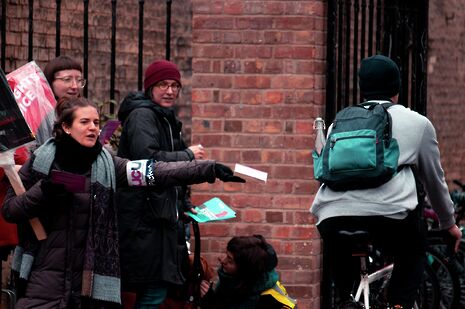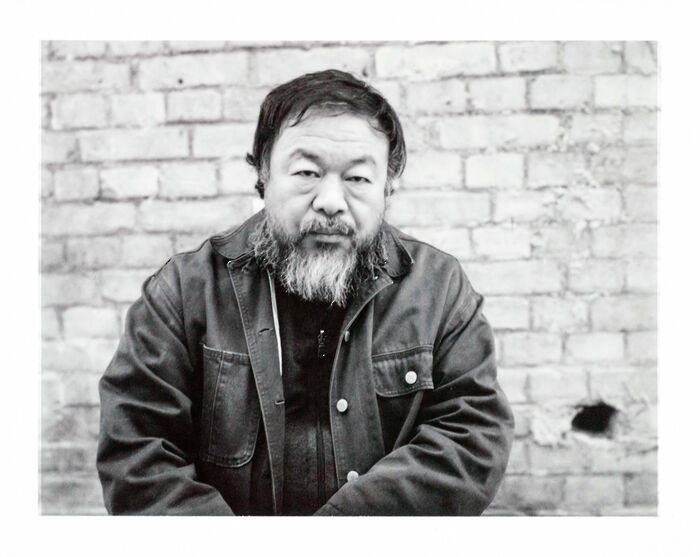“Frankly, we should all be furious”: Why are some students crossing the picket lines?
As strikes began this week, picket lines sprung up around Cambridge. Varsity spoke to students who made the decision to cross them.

"I am mad that my lectures were cancelled. And I am mad that I've had to rearrange supervisions and miss lectures to avoid crossing picket lines. And I am mad that I have to cross a picket line in order to not lose marks on an exam [...] But I'm mad at the University that took my money and isn't treating their staff fairly. I'm mad that the University let it get to the point that the staff felt even the slightest desire to strike."
Amid ongoing UCU strike regarding working conditions, pay, and pensions, students have had to decide whether or not to cross picket lines to enter University sites.
This decision has become a contentious one within the student body over the past week. CUSU was given a mandate to support staff strikes when, in the first CUSU Council meeting of the academic year, JCR and MCR representatives voted 36 to 3 that CUSU support potential strike action. Encouraging students not to cross picket lines was part of the required support. However, this week and in the days leading up to the strikes, some students voiced their concerns that crossing picket lines could impact the studies and, in particular, the welfare of students. CUSU’s encouragement that students do not cross the picket lines has been subject to strong and outspoken discontent which, although perhaps not truly widespread, has certainly been loud.
Varsity spoke to some of the students who have chosen to cross picket lines about their decision. While the majority of these students expressed support for striking members of staff, they cited reasons ranging from compulsory Tripos requirements and the absence of alternative teaching arrangements, to the cost of their education and the impact of not attending contact hours on their studies.
“Without lecture notes, I am thrown completely into the deep end,” explained law student Madeleine Wakeman. Although many lectures have been cancelled due to the strikes, lectures delivered by academics who are not striking are ongoing. For Wakeman, who has Dyspraxia, lectures are a crucial part of their studies.
“Dyspraxia affects cognition, meaning that sufferers have a slower processing speed and a weaker working memory. In practice, this can make it incredibly difficult to read large volumes of text and often results in spending significant amounts of time re-reading information in order to understand it properly.
“As I find it difficult to process large blocks of text, picking out key points is an impossible task and I’m left mindlessly copying down pages of notes which may or may not (as the case so often seems to be) be relevant.
“This is not only stressful, but a serious detriment to my education.”
Another law student cited tuition fees as the reason they were choosing not to miss ongoing teaching time and cross picket lines: They made this decision “purely because I’m paying for this. It’s nine grand a year, and that’s a lot to give up.”
“I can’t speak for all medics,” said one third-year medic, “but I have a few reasons why I’d choose to cross. One: it’s 100% attendance required. Even if you miss one dissection you are expected to rearrange to go to the other.
“This reason alone is enough to cross, as I don’t want to fail.”
The STEM students that spoke to Varsity all spoke of how few of their contact hours, particularly those which are compulsory, had been cancelled or rearranged due to the strikes.
This is the case for Computer Science student Andrea: “We have some assignments (called ticks) that need to be submitted online and then assessed in person. We can't miss these ticking sessions because failing to get a tick counts directly against our tripos grade. As far as we know, the strikes don't cancel or reschedule ticking sessions.
“I feel like assessment should be consistent with teaching - they should either be both affected or none. And while I get that it's not as easy to cancel [course requirements] as [it is to cancel] lectures, rescheduling would be great to show respect to the striking lecturers.”
Another Computer Science student added: "Two of my ticks take place during the strike. If I don’t attend either, I’ll lose 20 marks on one exam. I can’t afford to do that. So I have to cross the picket line. I’ve been reminded many times that there will likely not be a picket line in front of the actual department – instead it will take place at the entrance to the site – and therefore I will not physically have to cross a picket line... But that’s not the point."
"I support my lecturers; I don’t want to break a picket line—physical or otherwise."
This follows a similar trend to the 2018 strikes, where STEM students and faculty members spoke of the disproportionately small impact of industrial action on teaching compared to its impact on the teaching of arts and humanities subjects.
The students who spoke to Varsity shared concerns that their decision to cross the picket lines would incite negative reactions or judgement.
“For someone that deals with anxiety and is feeling quite anxious about missing more than 10 lectures because of the strikes, I feel like I can’t even go to the library to get a book that I may really need because other students or staff think I’m against what they’re doing, when I’m not,” said one geography student.
“There’s basically a sense of shame or negativity associated with someone who might just have to cross [picket lines] because it crucially affects their degree.
“I just think there’s a lack of attention given to those that may struggle because of what they have to do. They’re made to feel like they should just follow the norm and if they don’t they’ll be seen as unsupportive or just shamed because of what they do and that’s just wrong.”
Wakeman shared this concern: “Crossing a picket line should not be equated with undermining or contravening the strike action. Rather, steps should be taken, where possible, to minimise the anxiety faced by students merely trying to attend lectures.”
“What is important about this, though,” said one Computer Science student, “is where our anger is directed.”
“Quite frankly, I’m really angry that I’ve been put in this position. And I’m angry that I’m paying for an education and not receiving it. We deserve the education we're paying for! And we should all be demanding it.
“I am mad that my lectures were cancelled. And I am mad that I've had to rearrange supervisions and miss lectures to avoid crossing picket lines. And I am mad that I have to cross a picket line in order to not lose marks on an exam.
“I'm mad that when the staff felt the desire to strike, the University couldn't get their shit together and shape up in order to avoid those strikes.”
“I absolutely have the right to be mad, confused, and frustrated. Frankly, we should all be furious. But importantly, we should know to direct that feeling towards the people who are actually responsible for it: the University, not the striking staff.”
 News / Judge Business School advisor resigns over Epstein and Andrew links18 February 2026
News / Judge Business School advisor resigns over Epstein and Andrew links18 February 2026 News / Gov grants £36m to Cambridge supercomputer17 February 2026
News / Gov grants £36m to Cambridge supercomputer17 February 2026 News / Hundreds of Cambridge academics demand vote on fate of vet course20 February 2026
News / Hundreds of Cambridge academics demand vote on fate of vet course20 February 2026 News / CUCA members attend Reform rally in London20 February 2026
News / CUCA members attend Reform rally in London20 February 2026 News / Union speakers condemn ‘hateful’ Katie Hopkins speech14 February 2026
News / Union speakers condemn ‘hateful’ Katie Hopkins speech14 February 2026










